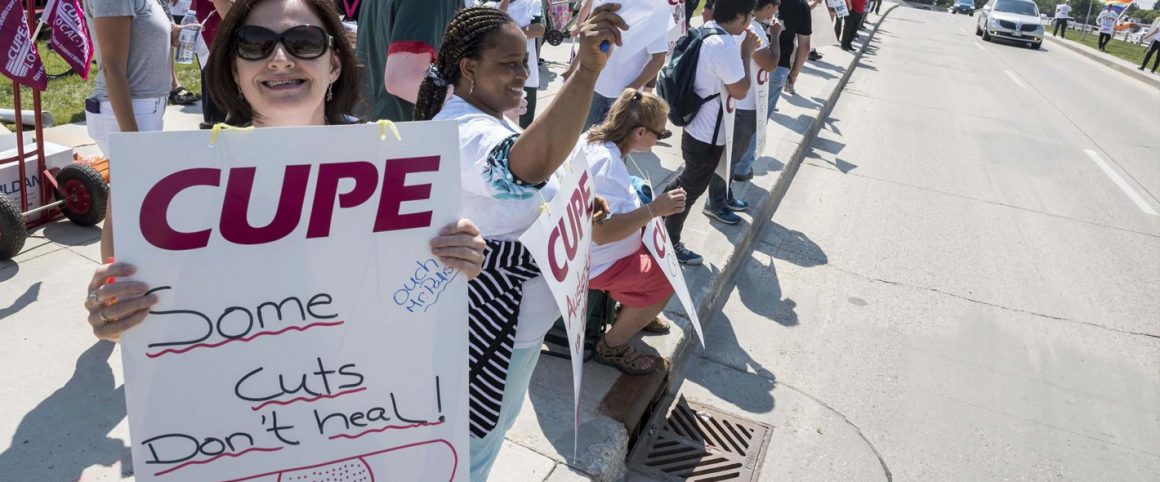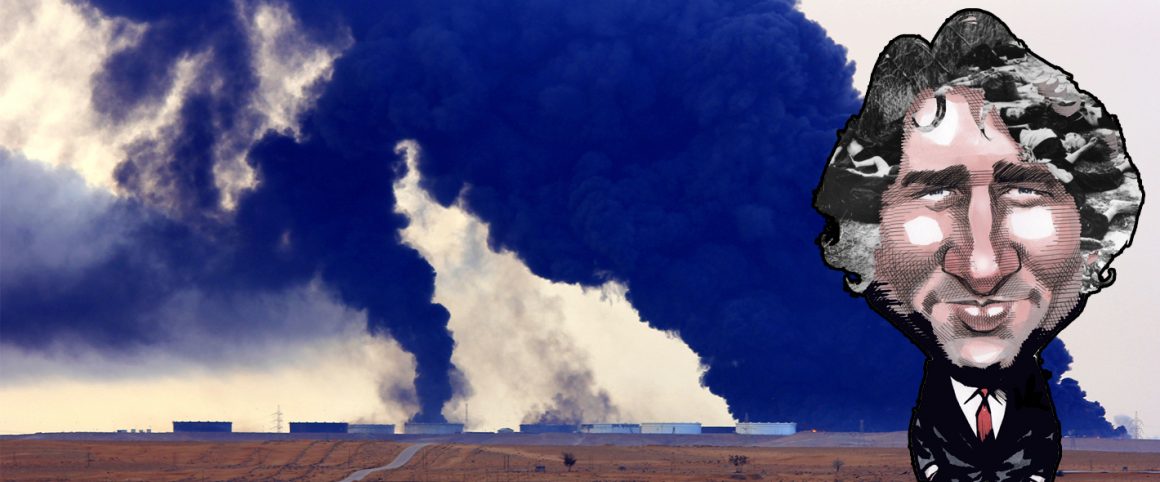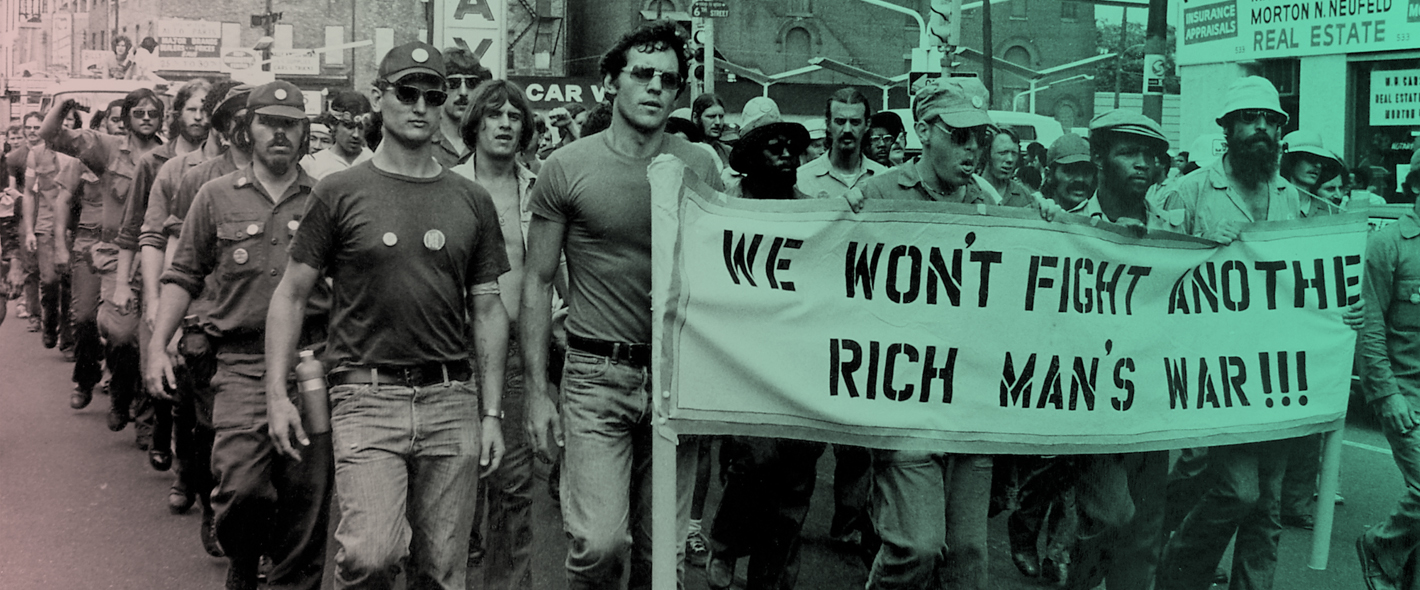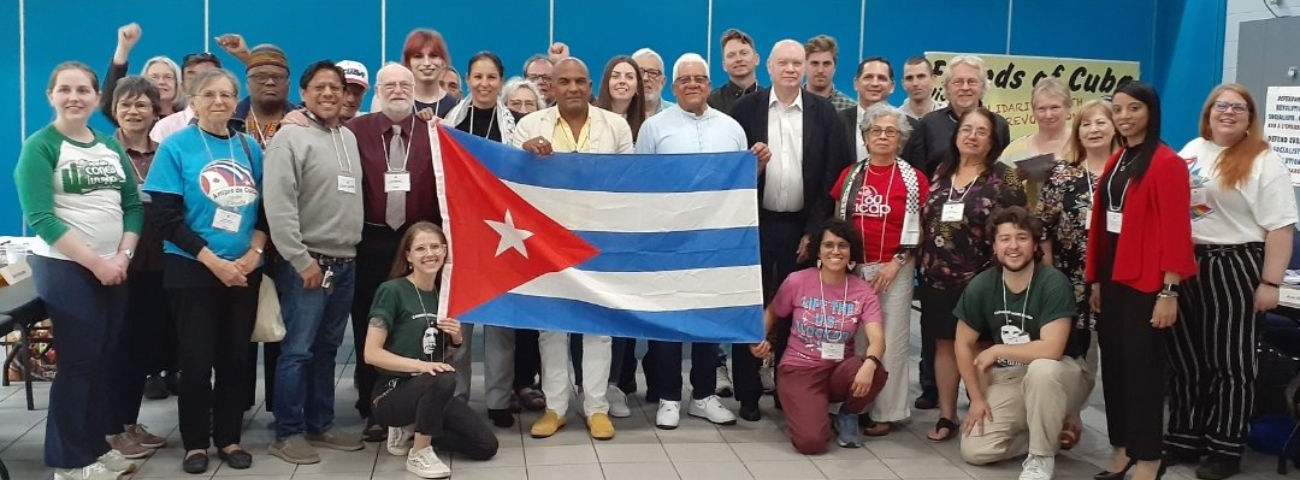“Peace and war is a bread and butter issue for workers in Canada.” That’s the perspective of a new leaflet published by the Canadian Peace Congress, for circulation to trade union members and bodies across the country. During the years leading up to and following the US-UK invasion of Iraq (2002 and later), hundreds of union locals and labour councils were active in the anti-war movement. Many passed anti-war resolutions, joined peace coalitions, and mobilized their members to take part in rallies and protests. Since that time, labour participation in anti-war actions has fallen dramatically, but over the past couple of years, more trade unions are again taking up this issue. We reprint here the text of the Peace Congress leaflet, as a contribution to efforts to engage organized workers in this crucial struggle.
Why should my trade union put war and peace on the agenda?
Working people in Canada today have troubling issues to deal with. The cost of living is leaving wages far behind, pensions and social programs are under constant attack, and full-time jobs with benefits are being replaced with part-time, precarious employment. Housing and child care are out of reach for most, and climate change threatens our very future. Some working people have trade unions to defend our interests, but the labour movement is under intense pressure from corporations and right-wing governments.
So why should our trade unions talk about war and peace? It’s not like Canada is invading other countries, after all. Haven’t we got bigger fish to fry?

A bread and butter issue for trade unions
Most people don’t realize that Canada spends over $20 billion on the military every single year, projected to top $32 billion within a few years. Donald Trump is demanding that other NATO countries spend 4% of their GDP on the military – over $70 billion for Canada! That staggering amount would mean an annual average of over $3500 from every person in the workforce, up from $1000 at today’s levels. Can you really afford to fork out that much, to purchase fighter-bombers, submarines, and weapons systems from transnational arms corporations? If our trade unions don’t pay attention to this shocking trend, we may end up paying a high price.
Consider the impact on other areas of government spending if Canada continues to pour tens of billions into the military. That’s money directly taken from health care, education, child care, housing programs, or clean water for Indigenous communities, to name just a few. Trade unions and other people’s movements face a stark choice: let governments turn Canada a key player in the US/NATO war machine, or invest in people, housing, jobs, renewable energy, and the environment. We can’t do both.

A bigger military does not make us safe
The Canadian Armed Forces (CAF) are increasingly integrated into the US/NATO alliance, which has elbowed the United Nations out of the picture. To replace the current fleet of CF-18 planes, Canada is preparing to buy 88 new fighter-bombers which will operate seamlessly with other NATO partners, at a cost of $15-19 billion. Canada is upgrading its naval forces, which could total $60 billion or more.
Peacekeeping has long been replaced with CAF participation in operations led by the major imperialist powers, such as the US occupation of Afghanistan in 2001, the bombing campaigns which led to the overthrow of the Libyan and Yugoslav governments, and moves to encircle Russia and China. These strategies increase instability and international tensions, and ratchet up global military spending to the $1 trillion annual level.
The latest examples include sending 250 Canadian troops to Mali to help defend French economic interests in West Africa, and the US-led Exercise Saber Strike along the western borders of Russia, a clear provocation which recalls decades of Cold War nuclear threats.

War profiteering: Canada’s shame
With Ottawa’s approval, Ontario-based General Dynamics Land Systems is producing $15 billion worth of heavy assault armoured vehicles for Saudi Arabia, which is waging war against the people of Yemen, and issuing threats against other countries in the region. For the sake of a few thousand jobs, Canada has strengthened the fundamentalist Saudi monarchy which denies democratic and human rights to its own population.

An imperialist foreign policy, and fascists in our Armed Forces
Canadian foreign policy is closely aligned with US positions: bitter opposition to the democratically elected government of Venezuela, antagonism towards Russia and China, strong support for the pro-fascist government of Ukraine, and a refusal to criticize Israel’s apartheid anti-Palestinian policies. Here at home, the Canadian military attracts far-right, even pro-fascist political forces which scapegoat Muslims, immigrants, refugees, Jews, communists, trade unions, environmentalists, Indigenous peoples, the LGBTQ+ community, and so on. Organized racist groups within the Armed Forces include the white supremacist Proud Boys.

Time to stand up for peace, not war!
In previous decades, many trade unions in Canada were strong supporters of the peace and disarmament movement and anti-war campaigns. As recently as the early 2000s, trade unions helped build huge protests against the disastrous US-UK invasion of Iraq, which led to millions of deaths and endless crisis in the region. There are many powerful reasons for trade unions to reclaim a crucial role in today’s anti-war struggles. With three million members, the main trade union federations in Canada and Quebec can bring new life to the peace movement. This process has begun recently, as more union locals and labour councils adopt resolutions in solidarity with the people of Palestine, or calling for an end to war and militarism. But this is only a beginning.
For more information, visit http://www.canadianpeacecongress.ca/




